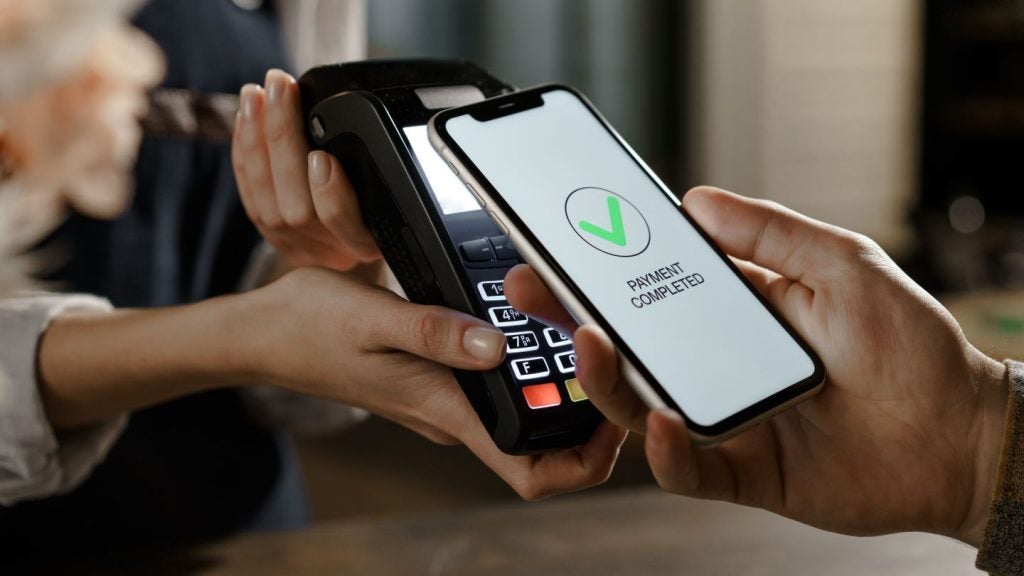The Puerto Rican credit card market is starting to grow again after a lengthy period of recession, Robin Arnfield reports
According to Fitch Ratings, Puerto Rico is emerging from a recession which started in 2006 and was aggravated by the economic slowdown experienced by the US.

Access deeper industry intelligence
Experience unmatched clarity with a single platform that combines unique data, AI, and human expertise.
"Since the Puerto Rican economy is so dependent on the US, when the US suffered an economic downturn, this negatively affected the island’s credit card market," says Les Riedl, senior managing partner at US consultancy Bank Solutions Group.
"Puerto Rico suffered greatly from the recession, with three bank failures in 2010," says David Lott, senior vice president at US consultancy Speer & Associates. "Westernbank, R-G Premier Bank, and Eurobank failed as they had credit quality problems, including their credit card loan books," says Doriana Gamboa, director, financial institutions, at Fitch Ratings.
Banco Popular de Puerto Rico, the Island’s largest bank, bought Westernbank from the FDIC, while Scotiabank de Puerto Rico bought R-G, and Oriental Financial Group bought Eurobank. In June 2012, in a further sign of banking industry consolidation, Oriental agreed to buy the Puerto Rican subsidiary of Spain’s BBVA (Banco Bilbao Vizcaya Argentaria).
Unbanked

US Tariffs are shifting - will you react or anticipate?
Don’t let policy changes catch you off guard. Stay proactive with real-time data and expert analysis.
By GlobalData"Around 40% of the population lives under the poverty level, so there is a large unbanked and underbanked segment," says Lott. "Cash plays a significant role in Puerto Rico’s payments landscape for tax avoidance reasons as well as a lack of bank access in rural areas."
"Around 60-65% of the population has a bank account," says Fabio Garcia-Passalacqua, senior vice president of Banco Popular’s retail lending division.
Speer & Associates estimates that there are around 2.7 million debit cards and 1.1 million credit cards in Puerto Rico. "PIN debit transactions dominate the market, as signature debit is primarily used by tourists," says Lott.
According to Mike Vizcarrondo, executive vice president at Puerto Rican acquirer Evertec Payment Services, there are 55,000 POS terminals in Puerto Rico handling an annual total of $19bn worth of card transactions. "This figure includes electronic benefit transfer (EBT) cards and private-label store cards," says Vizcarrondo. "Excluding private-label cards and EBT cards, the cards market is worth around $15bn a year. About a third of all Visa and MasterCard transactions in Puerto Rico are inbound transactions by tourists."
Evertec operates the ATH (A Toda Hora/At Any Hour) Puerto Rican PIN debit scheme and ATH-branded ATM network. "The majority of domestic ATM transactions in Puerto Rico go through the ATH ATM network," says Vizcarrondo.
CI understands that ATH-branded PIN debit cards account for nearly half of the Puerto Rican point-of-sale debit and credit card market in terms of dollar volumes. Visa and MasterCard combined account for two-thirds of the rest of the market, with American Express, Discover, Diners Club, private-label store cards, and EBT cards accounting for the remaining one-third.
Evertec
Evertec was founded in 2004 by Banco Popular, which sold a 51% stake in the acquirer in 2010 to a subsidiary of US private equity firm Apollo Management. "Evertec is the largest acquirer in Puerto Rico, processing ATH PIN debit, Visa, MasterCard, gift cards, American Express, Discover, and Diners Club," says Vizcarrondo. Evertec also operates ATH-branded networks in the US Virgin Islands, Dominican Republic, Costa Rica, and El Salvador.
In March 2012, Discover signed an agreement with Evertec, under which ATH PIN debit card issuers can add a Discover badge to their cards, so that they can be used as Discover signature debit cards outside Puerto Rico. "The deal will ensure international acceptance for ATH cards on the Discover network," says Vizcarrondo. "However, there aren’t any ATH cards with Discover badges in the market yet."
Regulations
"As Puerto Rico is a US Commonwealth, its banks are under the supervision and regulation of the mainland US banking authorities such as the FDIC and the Federal Reserve," says Lott. In addition, Puerto Rican banks are regulated by the Island’s Oficina del Comisionado de Instituciones Financieras (Office of the Commissioner of Financial Institutions).
"All the Federal Reserve rules on credit card marketing and disclosures apply in Puerto Rico," says Riedl. "Regulation of credit cards and debit cards is identical in Puerto Rico and the mainland US."
Puerto Rican issuers are subject to the the Credit Card Accountability Responsibility and Disclosure Act of 2009 (CARD), which took effect in 2010, and the Durbin Amendment to the Dodd-Frank Act, which took effect in October 2011.
Durbin requires debit card issuers to link their cards to two unaffiliated networks. Consequently, all Puerto Rican debit cards, except those issued by banks too small to be affected by Durbin, carry the ATH badge and another network badge, such as Visa’s Interlink PIN debit scheme.
"The banks which currently issue ATH-only debit cards are currently considering whether to add an additional network badge," says Manuel Catedral, country head for MasterCard Puerto Rico.
"The CARD Act has affected the Puerto Rican credit card market, as it has increased the visibility of the consequences of not making repayments," says Garcia-Passalacqua. "CARD showed people it would take them eight to 10 years to pay off their credit card debt if they only made the minimum repayment every month. So they’ve been increasing the amount of principle they repay on their monthly credit card bill."
"This has led to the credit card payment rate (payments of principle as a percentage of receivables) increasing for credit cards on Banco Popular’s portfolio from 12% before CARD to 19%," Garcia-Passalacqua says. "Other Puerto Rican issuers will likely have seen the same effect from the CARD Act."
Credit card loan quality
According to the Oficina del Comisionado de Instituciones Financieras, Puerto Rican commercial banks had total personal credit card receivables of $1.88bn at 30 September 2012, up from $1.58bn at 31 December 2011. Commercial bank personal credit card charge-offs totalled $72.62m at 30 September 2012, down from $109.68m at 31 December 2011.
At 30 September 2012, commercial banks’ personal credit card loans which were 30 to 89 days past due, totalled $40.4m.
"A general comment on Puerto Rican consumer credit, for example mortgages, is that there is a trend for delinquencies to be higher than in the US," says Gamboa. "However, this doesn’t necessarily translate into high levels of charge-offs. A Puerto Rican borrower may go six months without paying their interest, and then they will turn up at a branch with cash to make a repayment."
"When the recession hit Puerto Rico, credit card 30-day delinquency rates spiralled, but they didn’t really get out of control," says Riedl. "This is because Puerto Rican credit card issuers have good risk management systems."
Riedl says that, during the early 2000s, delinquency rates were 4.5-5%. "They rose to 7% during 2009-2010 for most of the banks," he says. "Issuers then became very selective about approvals for new credit cards, and tightened the lines of credit on their existing credit cardholders’ accounts."
"During 2006 to 2009, credit card portfolios declined due to higher credit losses and lower purchase volumes and also because cardholders’ repayments exceeded purchase volumes," says Garcia-Passalacqua. "We’ve seen steady growth and recovery in the credit card market since 2009."
"Now that credit card delinquency rates have fallen a bit, Puerto Rican banks are looking at ramping up their credit card marketing again," Riedl says. "The challenge is that the Puerto Rican credit card market is quite saturated."
"There is a major opportunity for Puerto Rican issuers is to convert cash transactions to cards," says Catedral. "But, to achieve this goal, banks need to educate Puerto Rican consumers about the benefits of using cards, for example the fact that cards are more secure than carrying cash. They also need to educate merchants that cash is more expensive for them than accepting cards."
Banco Popular
According to Lott, Banco Popular has around 35% of the Puerto Rican consumer banking market. "Of the approximately 1,300 ATMs on the Island, more than half are owned by Popular," he notes.
Popular said in an investor presentation that it led the Puerto Rican credit card market with a 45% share in 2012..
"Popular has around 500,000 credit card accounts and 1.5 million debit cards," says Garcia-Passalacqua. "Our credit card portfolio has been relatively flat over the last few years in terms of organic growth."
In August 2011, Popular acquired Citi’s Puerto Rican and Virgin Islands AAdvantage credit card portfolio, becoming American Airlines’ exclusive co-brand issuer in these territories. According to Popular, the AAdvantage portfolio was worth $131m million in 2011.
"Buying Citi’s AAdvantage portfolio increased our credit card portfolio by 8%," says Garcia-Passalacqua. "The overall Puerto Rican credit card market has declined by double-digit rates, so Popular is actually outperforming the market. The reason that our credit card portfolio has stayed flat, instead of declining along with the rest of the market, is because we’ve been proactive in growing our cards business. Also, despite higher levels of repayments, Popular’s cardholders are using their credit cards more widely for purchases."
According to Garcia-Passalacqua, Popular’s credit card delinquency rate is better than the Puerto Rican market average. "We have a 4% charge-off rate," he adds. "Popular’s 30-day delinquency rate has been trending down, and I think that, for the market as a whole, delinquency has also been declining."
Rewards
"Popular launched the Premia loyalty scheme for its credit cards in 1995," says Garcia-Passalacqua. "In 2002, Popular made Premia available for all its banking products. Premia is on all our credit cards except for our AAdvantage cards. However, AAdvantage cardholders still get Premia rewards on the other Popular products they hold."
"Premia has been a very successful loyalty scheme for Popular," says Riedl. "Puerto Rican banks regard credit cards as part of their overall relationship with their customers. The more products they can offer a customer, the more profitable that customer will be, and credit cards are still one of the most profitable retail banking products. "
"Normally in the credit card industry, if you have two different credit cards with the same issuer, you get enrolled in two different loyalty programmes which are separate from each other," says Garcia-Passalacqua. "But Popular has the approach that, if you have two credit cards with us, we give you a single line of credit that you share on the two cards, and both cards are enrolled in Premia."
Garcia-Passalacqua says the majority of Popular’s clients have two different credit cards with the bank. "We provide two credit cards on the same account, with a single statement, for example a Visa and an Amex card, or MasterCard and Amex," he says.
While Amex issues on a stand-alone basis in Puerto Rico, only Popular and Banco Santander Puerto Rico issue co-branded cards with Amex, notes Garcia-Passalacqua.
"We issue credit cards to all our segments," says Garcia-Passalacqua. "Our largest segment is mass-market customers, to whom we offer no-annual fee credit cards with optional rewards programs. For our mid-tier segment, we offer credit cards with the ability to earn rewards at a faster rate than our mass-market segment cards. We also offer Amex and Visa Signature credit cards to this tier. Our top-level customers are offered Amex Black and Visa Infinite and a higher reward earn rate than mid-tier customers."
MasterCard
"In Puerto Rico, MasterCard has several programs to encourage card usage," says Catedral. "We have the Priceless Puerto Rico platform which gives domestic cardholders special local offers and provides offers for tourists visiting the Island. Priceless Puerto Rico is part of MasterCard’s global Priceless Cities platform, which offers unique deals and discounts in cities around the world."
Since MasterCard launched Priceless Puerto Rico in July 2011, the number of participating merchants has grown to 76. In the 12 months to June 2012, MasterCard Puerto Rico saw $15 million worth of card transactions take place through Priceless Puerto Rico, amounting to 120,000 card transactions.
MasterCard and its client banks offer the Privilegios platform which provides affluent Puerto Rican cardholders (MasterCard Black and Platinum cardholders) with over 40 special offers at participating Puerto Rican merchants. "The affluent segment is fairly concentrated in Puerto Rico, with only a small percentage of the population considered affluent," says Catedral. "However, it is a very important segment for MasterCard, due to its high purchasing power."
Market growth
In June 2012, FirstBank Puerto Rico acquired a $402m FirstBank-branded credit card portfolio from Bank of America’s FIA Card Services subsidiary. FirstBank had originally sold the portfolio, which consisted of around 150,000 accounts in May 2012, to FIA in 2004.
"The fact that FirstBank bought its portfolio from FIA shows that the credit card market is growing again in Puerto Rico," says Claudia Cermeli, a client partner at US-based cards analytics and fraud management technology firm FICO.
Cermeli says that all the leading Puerto Rican banks such as FirstBank, Popular and Santander are planning to implement sophisticated technology for their cards portfolios, as they want to expand their share of the Island’s credit card market. "FirstBank, Popular and Santander are being aggressive in penetrating the Puerto Rican credit card market," she says.
"Puerto Rico’s credit and debit card volumes are growing comfortably at high single digits," says Vizcarrondo. "The growth rate is higher than the US market but not as fast as in Latin American countries where there has been lower penetration of payment cards."
According to Vizcarrondo, the Puerto Rican cards market is midway between the US and the more sophisticated Latin American countries such as Chile and Brazil. "Puerto Rico has a higher cards penetration rate and a higher usage rate per card than Latin American countries," he says. "Puerto Rico is more similar to the US cards market than to an up-and-coming Latin American country such as Chile or Brazil."
Fraud
"Puerto Rico doesn’t have a real problem with card fraud," says Garcia-Passalacqua. "Our fraud level is slightly above the US level of card fraud, but is still lower than global or regional fraud indicators."
"Card fraud is not a major problem in Puerto Rico," agrees FICO’s Cermeli. "Most of the Island’s banks use FICO’s Falcon Fraud Manager system to prevent card fraud."
In December 2012, Evertec signed an agreement to use the FICO Card Alert Service to combat counterfeit card and skimming fraud on its Puerto Rican ATH Network. Evertec already uses Falcon Fraud Manager. FICO Card Alert Service analyses transaction patterns to help issuers identify counterfeit or skimmed cards before they incur fraud losses, FICO says.
Unlike the US, which has set a deadline of 2015 for migration to EMV, Puerto Rico has no timeline for EMV migration. "At some point, Puerto Rico will have to migrate to EMV," says Garcia-Passalacqua. "We are watching what is happening with EMV, but have no imminent plans to implement EMV in Puerto Rico."
"Debit card fraud is less than half of what it is in the US," says Vizcarrondo. "Around 75% of all card transactions are debit card payments, and most debit cards are PIN-based, which helps reduce fraud. Credit card fraud is at a parallel level to the US, so there is more incentive to migrate credit cards in Puerto Rico to EMV than debit cards."
Vizcarrondo says that, while there is no EMV issuance in Puerto Rico yet, several Puerto Rican acquirers including Evertec are already in the process of becoming EMV-compliant. "The Puerto Rican market is turning to EMV because of MasterCard and Visa mandates, not because of fraud," he says.







